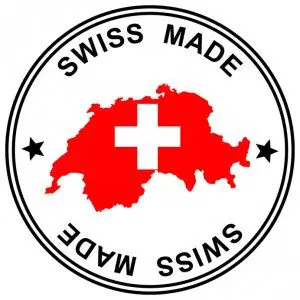Translation Services for Swiss Companies
 GTS provides high quality, professional translation services in all of the official languages of Switzerland (French, German and Italian). Click here to get an instant price quote for Swiss translation services online.
GTS provides high quality, professional translation services in all of the official languages of Switzerland (French, German and Italian). Click here to get an instant price quote for Swiss translation services online.
Swiss Translation Services-
Precision and Punctuality
If there is something that Swiss companies appreciate its punctuality and precision. After all, Switzerland is best known for its watches and trains. Swiss trains are always on time, just like GTS. Our translations are always on time too.
Our dedication to precision in translation, our uncompromising quality process and our user-friendly online order processing system make GTS the translation company of choice for many Swiss companies. Our Swiss clients know that they can count on GTS to communicate effectively in any and all languages.
Swiss translation materials that we translate
We translate many types of materials for our Swiss clients. This includes translation of websites and web content; legal documents, contracts and patents; SDS; technical manuals, financial and business documents.
Switzerland has a booming pharmaceutical industry and we help Swiss pharma and medical device companies with translation services for clinical studies, new drug applications, CRF, Informed Consent, medical device manuals, IFUs and other related documents.
We translate in all of the languages which are spoken in Switzerland: German, French and Italian. We specialize in German English translation services and we translate all kinds of French documents into English.
How does Swiss German Differ from Standard German?
Swiss German and Germany German, while both dialects of the German language, exhibit significant differences that go beyond mere pronunciation and extend into syntax, vocabulary, and usage. Swiss German, or Schwyzerdütsch as it is called by its speakers, is primarily spoken in Switzerland and is characterized by a variety of regional dialects that can vary greatly from one canton to another. In contrast, Germany German, or Hochdeutsch, refers to the standardized form of German that is taught in schools and used in formal settings across Germany.
The most notable difference between the two is in their spoken form. Swiss German has a distinct pronunciation and intonation pattern that can be challenging for speakers of standard German to understand. It retains many archaic features and words that have disappeared from standard German, giving it a unique flavor. Additionally, the grammar and syntax of Swiss German can differ, with variations in the use of certain verb forms and sentence structures.
In terms of vocabulary, Swiss German incorporates a significant number of words from French and Italian, reflecting Switzerland’s multilingual heritage. This results in a linguistic landscape where a single German word might have several Swiss German counterparts, depending on the region. For example, the standard German word for bicycle, “Fahrrad,” can be “Velo” in Swiss German, borrowed from French.
Moreover, Swiss German is not typically written in formal contexts, with standard German being used instead for written communication, such as newspapers, books, and official documents. This delineation between the spoken and written language is a unique aspect of the linguistic situation in Switzerland, emphasizing the practical use of language in daily life versus formal or educational settings.
Despite these differences, both Swiss German and Germany German speakers can usually understand each other with some effort, especially if the Swiss German speakers adjust their speech towards standard German. The relationship between the two forms of German highlights the rich diversity within the German-speaking world, showcasing how language evolves and adapts to cultural and regional influences.
These are some of our Swiss clients:
Burson-Marsteller Schweiz
Celerion
Degrémont Technologies AG
EAACI – European Academy of Allergy and Clinical Immunology
Firmenich
go4mobile ag
Nestle
Novartis
Omnisens
Qmedics AG
UBS
